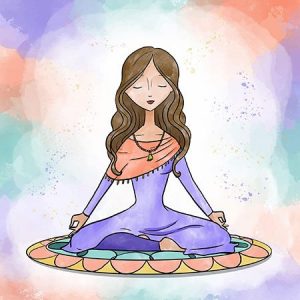Let’s bust some common myths about hypomania
Myth 1: Hypomania always gives the patient a positive experience.
Fact: Hypomania is a mental issue that can lead to sleeping problems, agitation, irritation, restlessness, grandiosity, and impulsive behavior.
Myth 2: People suffering from hypomania are found happy and fun to be with.
Fact: The mood of the people having hypomania is quite unpredictable. Hence, they need someone’s support every time to face their episodes to stabilize the repair their mood and strength.
Myth 3: The patients having hypomania get things done with ease.
Fact: The episodes of hypomania are both destructive and productive. The patient can feel boosted, energetic and confident sometimes, or the opposite too. The episodes are quite unpredictable and hence sometimes the person can be productive and pleasant, while on the other hand at times he can be destructive and anxiety-ridden.
Myth 4: Hypomania and psychosis go hand-in-hand always.
Fact: Both psychosis and hypomania are totally different. The person suffering from psychosis suffers from changes in his thoughts, actions, and perceptions. Hence, hypomania doesn’t exhibit with psychosis.
Myth 5: Individuals having hypomania are always full of energy.
Fact: Similar to other people, people dealing with hypomania require sufficient sleeping hours. It is quite difficult for them to have a sound sleep which can surely lead to other health issues like hyperactivity, elation, and euphoria.
Bipolar Disorder – An Introduction to Mania and Hypomania
Bipolar Disorder is one of the mental health disorders which is very finely defined by episodes or periods with life-threatening mood disturbances. The issue affects the thoughts, behavior, and mood of the sufferer. There are mainly two types of bipolar disorder types namely, bipolar I and bipolar II, which are termed as mania and hypomania by the medical professionals. Bipolar I or mania is termed as a severe stage of depression in which the episodes are quite dangerous, while Bipolar II is termed as hypomania, which is less severe compared to mania.
What is Mania?
Mania is termed as a disturbance in the mood in which the individual feels bizarrely excited, energized, euphoric, and unable to complete any task. The episodes of mania can last for a few days or even more. During the episodes of depression, the individual might start working on various projects thoughtlessly and remain awake for hours at night working on them. However, fails to complete any of the projects. Such behaviors might interfere with day-to-day routine and in certain cases, the situation might get worsen that the individual needs to be hospitalized.
What is Hypomania?
Hypomania is a state that is a little similar to mania, however, the episodes are less intensive compared to the mania episodes. The episodes of depression in hypomania last for some days in which the individual feels to have a good flow of good energy. The individual might feel capable of meeting all the daily requirements with ease. The individual might face some issues in his life, however, compared to mania, they are pretty much mild without any requirement of getting hospitalized.
What are the symptoms of mania and hypomania?
Talking about the symptoms of mania and hypomania, the symptoms are quite similar to each other. The only thing that differs from the symptoms is the intensity level. Here are some of the common symptoms of mania and hypomania.
- disability of sitting for long hours or restlessness
- having highly boosted energy levels
- reduced sleeping hours
- boosted confidence, grandiosity, and self-esteem levels
- being awfully talkative
- having too many ideas, thoughts, or plans running in the mind
- getting easily preoccupied
- starting with multiple projects with no idea on how to finish them
- reduced embarrassments
- increase in sexual desires
- feeling too much irritated or happy
- getting engaged in risky behaviors like gambling with savings, impulsive sex, etc.
The patient suffering from such symptoms might not recognize such changes in their lives or even the state they are going through like mania or hypomania. On the other hand, the symptoms of mania or manic episodes can lead to certain serious conditions or depression such as:
- auditory or visual hallucinations
- paranoid thoughts
- delusional thoughts
As per the reports from the National Institutes of Mental Health, the episodes of mania can last for a minimum of 7 days. The condition might turn severe that requires hospitalization. In between the episodes, the individual can also get back to normal, or have minor symptoms.
What are the risk factors or causes of mania and hypomania?
No doubt, the clear cause of both mania and hypomania is still not clear, there are certain risk factors that lead to health issues like lack of sufficient sleep, particular medications, excess use of alcohol and drugs, etc. Apart from all these, having a family history of either of the issues is also among the causes of having mania and hypomania. Further, having a chemical imbalance in the brain is also one of the reasons for suffering from either of them.
The risk of suffering from mania and hypomania also increases when one has already suffered from an episode and refuses to continue with the medications prescribed by the doctor. The people diagnosed with schizophrenia or schizoaffective disorder are also at high risk of suffering from mania or hypomania. Premature birth can also lead to any of the mental issues. Similarly, around 40% of the identical twins are found to be having bipolar disorder while the ratio for fraternal twins is around 10%.
Some other causes contributing to the factors that lead to mania and hypomania include abnormalities in the circuitry of the brain, neurotransmitters irregularity, and particular environmental factors like abuse or childhood trauma.
How are mania and hypomania diagnosed?
The diagnosing of bipolar disorder would require a detailed medical history of the patient along with physical examination. The patient needs to share all the prescribed medications along with OTC medications or supplements used. Any kind of drug or alcohol addiction should also be informed.
Also, it is difficult for the doctor to determine if one is suffering from mania or hypomania. If one is suffering from depression, however, if he is not informed about any mania or hypomania behavior, he would conclude that the patient is suffering from depression and not bipolar disorder. Also, there are other health issues that can result in mania or hypomania like the overactive thyroid gland.
1. Diagnosing mania
Considering mania, in various cases, the symptoms last for a minimum of one week for the doctor to diagnose with mania. However, if the symptoms worsen and the patient is hospitalized, the diagnosis can be made easily in a shorter time span.
2. Diagnosing hypomania
In hypomania, the symptoms should last for a minimum of four days for the doctor to recognize hypomania. In hypomania, the symptoms are less intense and no hospitalization is required.
Bipolar disorder is not possible to be diagnosed through other health issues like blood tests, physical examination, X-ray, etc. The diagnosis for both includes particular tests like CT scan, drug screening, MRI, electroencephalogram, and lastly diagnostic blood tests full battery. The results of all the tests as well as a detailed medical history of the patient helps the doctor in planning the right treatment.
Meanwhile you may also like to learn about Chronic Loneliness and its treatment.
What are the possible treatments for mania and hypomania?
The treatment for mania and hypomania are quite similar to each other, however, it highly depends on the severity and types of symptoms the patient is suffering from individually. The doctor highly recommends a set of medications along with psychotherapy for treating both mania and hypomania. The doctors highly prescribe mood stabilizers in the treatment like lithium, anticonvulsants for working over the mood swings, antipsychotics for controlling psychotic symptoms like hallucinations or delusions, and lastly antidepressants to work over mania episodes.
Again, the doctor might experiment with different medications until he discovers the right medicinal combination for working over the symptoms. For the patients, it is essential they take the medicines as asked by the doctors. If the patient goes through any side effects of the drugs or medications, one shouldn’t stop taking the medications without consulting the doctor. So, if you are facing any side effects, it is highly recommended to immediately talk with the doctor.
Talking about hypomania, medication is surely required for the treatment. Along with prescribed medications the patient also needs to have a well-balanced diet, be regular with sleeping hours and time, go for exercising every day, avoid excess intake of caffeine, etc. Lack of proper sleep can also lead to hypomania.
How to deal with mania and hypomania?
Following the prescribed medications and therapy is surely helpful for working over mania and hypomania, yet there are other ways that can help in reducing the symptoms of mania and hypomania to a great extent. Here are some of the effective tips to deal with bipolar disorder.
- It is possible to manage mania and hypomania on your own or through family members. This can be done by learning about the condition and try to avoid the issues that trigger
- Prepare a diary and mention your mood swings as it makes spotting early warning signs with ease. This can help in prevention from a worse situation to appear
- Along with the patient, the family members and close friends also play a vital role in the treatment of the bipolar disorder
- Keep a keen watch on the suicidal thoughts, and if harmful thoughts appear, talk to the doctor straight away
- Joining support groups for bipolar disorders can also be helpful in dealing with the issue
For preventing bipolar disorder, focused family therapy is highly recommended, especially in the case of children dealing with bipolar disorder. Being open with the doctor can help in managing the symptoms and improving life quality too.
What is the difference between mania and hypomania?
Both mania and hypomania come with similar symptoms. The only thing that differentiates them is the level of severity. Mania and hypomania include changes in behavior and mood compared to normal or daily changes.
Mania is a quite severe state in which the individual fails to work on daily activities. In severe conditions, the patient might need to be hospitalized.
While talking about hypomania, the symptoms are usual and can be noticed by friends and family members with ease, even if the individual fails to recognize the symptoms on his own. However, medical aid is still required so that the symptoms don’t worsen.
Hypomania is surely not a severe state compared to mania, it can still be dangerous and come with a negative impact on the overall health of the individual. As per a study, the patients suffering from hypomania episodes are more likely to suffer from behavioral risks like excess intake of drugs and alcohol, spending too much of money, driving dangerously, engaging in harmful sexual behavior, etc.
The patients suffering from mania might also have hallucinations, manic stupor, or even delusions. Hence, if the patients suffering from hypomania fail to get effective treatment and care, the risk of suffering from mania increases highly.
What are the similarities in mania and hypomania?
The symptoms of mania and hypomania include feeling too much happy, becoming emotionally boosted, feeling highly creative, and energetic. In certain cases, the episodes of mania and hypomania can be mixed with depression which is termed as mixed features episodes. When such episodes take place, the patient feels additionally energized, hopeless, depressed, or blank.
There are certain activities or events in life that can result in episodes of hypomania or mania, which is termed as triggers. Some of the triggers related to mania or hypomania include:
- falling in love
- taking recreational or stimulant drugs
- initiating a creative and new project
- attending late-night parties or projects
- moving out for a vacation
- going for loud music
- increased stress levels
- lack of sufficient sleep
- intake of antidepressant medications
Hence, apart from the severity levels, both mania and hypomania are quite similar which makes it difficult for the doctor to diagnose.
Words of Caution
Mania and hypomania are types of complex mood disorders. Hence, if you feel yourself suffering from any symptoms or any of your friends or family member having such symptoms, it is advised to seek medical attention and evaluation immediately. Both the conditions are for sure not curable but can be treated effectively. With proper medication, therapy, and family care and support, it becomes easy to manage the symptoms and improve the quality of life in an effective way.


















